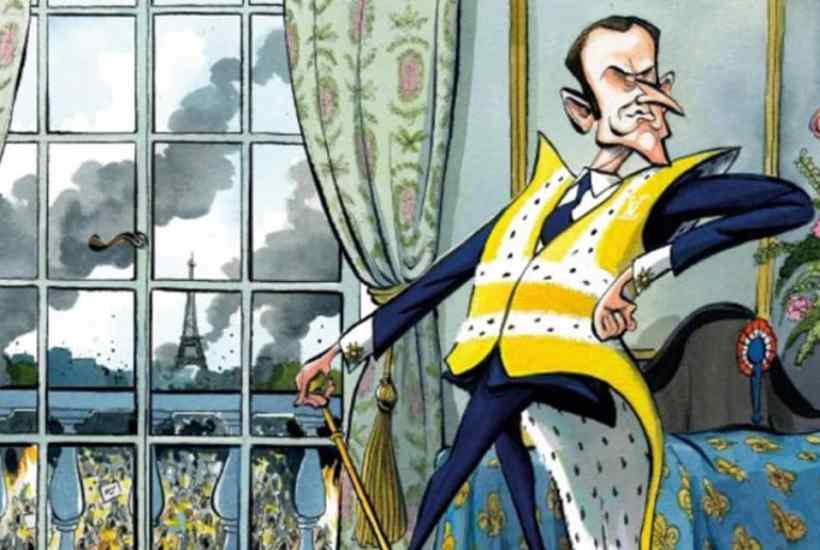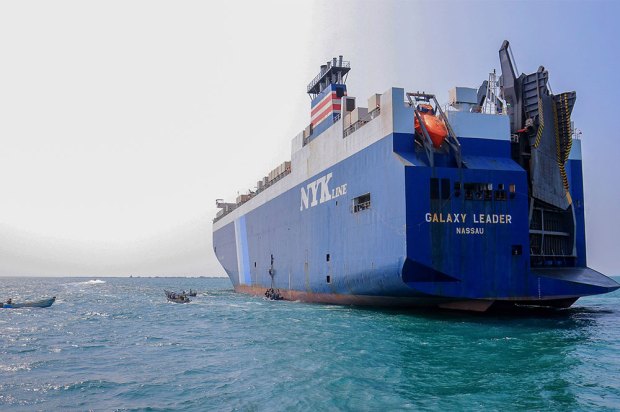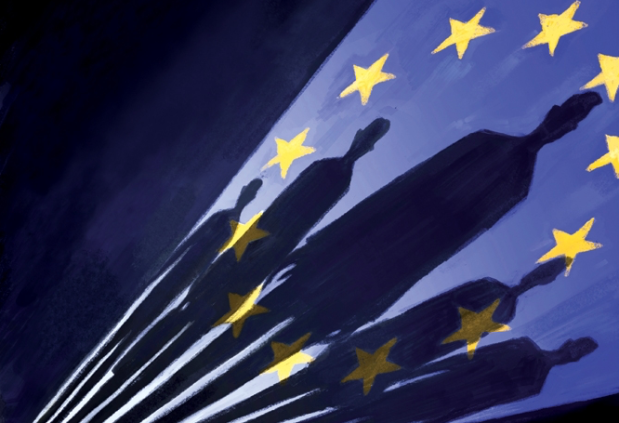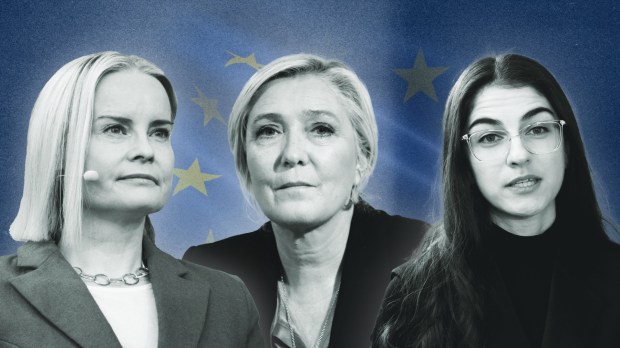The Ukraine crisis has transformed international affairs, forcing countries the world over to rethink their alliances and interests. New patterns are forming that will probably stay in place for many years – and one outcome is that global deals are being seen as more effective than regional ones. Sweden and Finland look set to join Nato, and Britain has agreed a defence deal with Japan.
In theory, EU countries are required to come to the help of any member that is attacked, but Sweden and Finland feel that only Nato membership (which offers a place under America’s nuclear umbrella) can afford them true protection. As they wait for the applications to go through, they have signed a defence deal with Britain which promises them interim protection.
All these developments make Emmanuel Macron nervous. He is still pursuing his own vision of a Europe that can defend itself without the help of outsiders (or Nato). To this end, he has proposed a new ‘European political community’ – a wider, looser organisation which could include countries from the United Kingdom to Ukraine, allowing them to take part in grand political schemes for the European continent without having to go along with the rest of the EU’s aims. This would sit alongside Macron’s idea of an EU co-ordinating the rearming of Europe, with the aim of moving away from Nato and reducing dependence on Washington.
Superficially, Macron’s idea has its attractions. Had this ‘country club’ membership been on offer when David Cameron was renegotiating with the EU, he would have taken it and won the referendum. The EU would never have lost Britain’s diplomatic heft. Much as the Remain campaign tried to claim otherwise, the sovereignty argument was central to the referendum result. Britain wanted freedom to control its borders and make new global alliances to better manage the challenges of the 21st century.
But now that France is proposing what Cameron wanted six years ago – a looser political union of the kind which might have kept Britain within the European project – is it worth reconsidering? If we have free trade with the EU, and now Macron is offering us the chance of membership of a wider diplomatic club, would that not constitute the best possible arrangement, increasing Britain’s influence in Europe without being tied into the EU?
Macron’s offer comes at a difficult time in UK-EU relations. The Prime Minister had hoped that the post-Brexit customs border between Northern Ireland and Britain would involve minimal checks. But there have been so many – with thousands of lorries manually inspected – that trade between the two parts of the UK is plummeting. This has led to outrage and mass protests in Northern Ireland. Johnson argues that such unrest is not in the interests of the UK, Ireland or the EU and wants to negotiate a new system. Macron is refusing, seeing the political pain as part of the price of Brexit.
Another result of Brexit is that without Britain, the EU is struggling to pack the same diplomatic punch that it used to. Macron understandably wishes to address that. But his proposed club is also likely to have its constraints. In theory, every EU country can act independently on issues such as foreign affairs and vaccine procurement. In practice, membership of such a deeply political union means there is a pressure to move in lockstep. Being free of that pressure allowed Britain to move faster in arming Ukraine and to strike defence deals.
Coalitions of the willing can move quickly on key issues: think of the Five Eyes, Aukus, the Joint Expeditionary Force which has been so important on Ukraine, and the work with the G7 and the EU on sanctions. On the trade side, the UK also wants to join the new Trans–Pacific Partnership. The Anglo-French defence agreements – between Europe’s two biggest military spenders – also show that ad-hoc coalitions can be highly effective.
Critics of the Prime Minister might call it ‘cakeism’ – a reference to Boris Johnson’s famous remark that, when it comes to cake, he is ‘pro-having it and pro-eating it too’. Others might simply describe this as a smarter way of engaging with other nations on matters of mutual interest – forming arrangements by which the desired results can be delivered most effectively. We have always used our memberships of different coalitions to advance the national interest; we were members of Nato and the Commonwealth throughout our membership of the EU. Yet since Brexit there has been a huge impetus towards a more flexible and responsive approach to international affairs.
There are EU projects and initiatives which we may very well want to join in the future. But there is little need for another over-arching political union which seeks to concentrate power in Europe (and perhaps in Paris in particular). Britain should have the confidence to think beyond continental boundaries and towards a new era in which nations cooperate with each other at multiple levels all over the world.
Got something to add? Join the discussion and comment below.
Get 10 issues for just $10
Subscribe to The Spectator Australia today for the next 10 magazine issues, plus full online access, for just $10.
You might disagree with half of it, but you’ll enjoy reading all of it. Try your first month for free, then just $2 a week for the remainder of your first year.














Comments
Don't miss out
Join the conversation with other Spectator Australia readers. Subscribe to leave a comment.
SUBSCRIBEAlready a subscriber? Log in